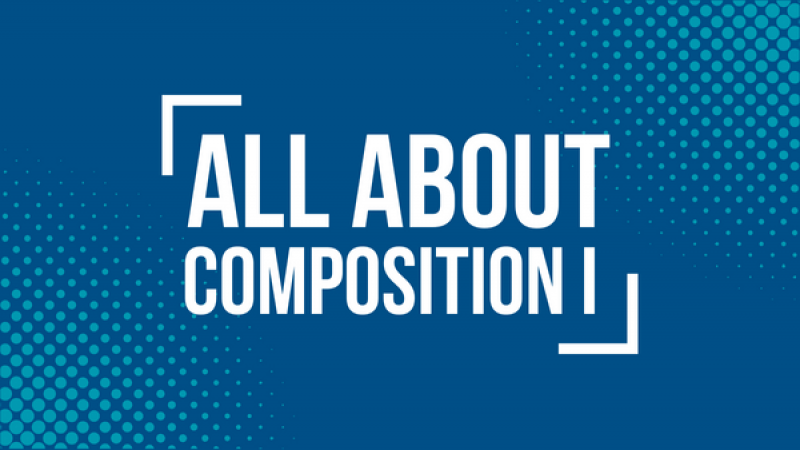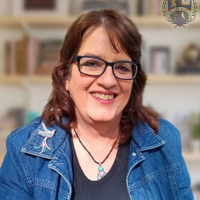All About Composition I

Wondering what Composition I covers and if it’s right for your student? Watch this video to hear directly from Gal VanRyan, VSA Teacher.
Episode Transcription
Note: This transcription may vary from the words used in the original episode for better readability.
My name is Gail Verheyen. I have been working for Veritas– this is my ninth year. I have taught Grammar and Writing 4, 5, and 6, and I'm currently teaching Composition I. I developed a lot of the original materials for Comp I when we were starting with our new textbook, and it's truly my very favorite class to teach for Veritas. My very favorite class.
All right, so I'd like to talk a little bit about our approach. We have our very own textbook developed with World Magazine. It is– the students really like it. The readings are short and to the point, and the assignments are very, very thoughtful. And so they do have some textbook readings. But the way we approach this is we do class breakouts, and in class writing assignments, the goal is to have them to practice the skills before they go off on their own and do things.
We also have students share their work in class and on discussion boards, and usually, I find in Composition I that at first, the students start out and they say, “Oh, that's a good piece of writing,” or, “I really like your topic.” And the goal is to get them to the point that they can actually critique each other's work, and sometimes that takes a bit more time than others.
But part of editing your own work involves evaluating what is good writing and what is better writing, and what is best writing. And so we really work on that. We do step-by-step graded pre-work and drafts, and this is something that is very, very important. So, for example, they are currently writing a personal narrative, and Thursday they will be putting in their introduction, and I make comments on that introduction, and then the next week, they do the introduction and the middle of the story and then make comments on that.
And then, the next week, they do the introduction, the middle, and the end, and I make comments. And so there's a lot of graded pre-work and drafts with comments so they can keep going. We do use rubrics for grading. Now how is Composition I different than Grammar and Writing Transition? We assume that they are pretty much done with grammar and other than a missing comma or two, they pretty much know how to write sentences with complex structures and things like that.
So we have minimal teaching on grammar, minimal teaching on Grammar, and it's primarily about writing. We are taking them beyond the process and into expression. And so we are looking at how they express themselves, how complete their ideas are, how they form arguments, how they tell a story versus the very strict structure of the grammar. The younger the 4-6 grammar programs.
So there's very little training on grammar and teaching on grammar and spelling. We assume that they are indeed mostly there. And so for this reason, sometimes a lot of parents, they think that Composition I is automatic for 7th grade. I do want to note here that it should not be considered an automatic course for seventh grade if your student is still struggling with grammar -and there's absolutely no shame in that. You may want to consider Grammar Writing 6, either of our two courses, Grammar Writing Transition, and then go to Composition I because Composition I is the next level.
-
Because this, of course, is the transition from here until later on when we get into the rhetoric stage. So if a student is really struggling with Grammar, really struggling with formulating thoughts, it may not be the best choice for them to go into Composition I, they may need a little bit more time. And I think we all know that we develop at different stages and in different ways. I always tell my students that writing is a life skill, so take your time in learning it because no matter what you do in life, you will be writing. So it's more important to get your basics step by step than it is to really press on to the next level.
So parents often ask me what the major writing assignments are, and they are crafted basically, as I said, to teach students not just process, but to teach them expression and how the depth of thought that goes into writing.
Okay. I'd like to talk just a little bit about the major assignments. We start out with a three paragraph essay with one source. The reason we do that is we get students from a variety of backgrounds, and that allows us to assess where they are. Many of them have not written papers with sources before. Many of them are used to the very rigid IEW method. And I'm a big IEW fan, but we kind of go beyond that in Composition I, and so we do that as a beginning assignment. Then we get into a very structured six-paragraph structure, persuasive essay with multiple sources, and we do both argument paragraphs that are supporting the thesis and we do a refutation paragraph. And so we teach them to look at both sides of an argument, and it must be a completely debatable one.
Autobiographical essay. Okay. This is also called The Personal Narrative. This is kind of similar to Grammar Writing Transition. We're currently doing this for the tell a story from their lives start from their lives, and it sounds so easy, but when you are creating a truly well-crafted piece of writing, there is a tremendous amount of work in doing that and learning how to – and as an example, today we were talking about setting some stories need a lot of coverage of setting, and some do not. If you have a story that's primarily involved interactions with people, the setting may be secondary. If you have something like you go to the zoo and the tiger escapes, well, the setting is everything right? And so how you discern how much setting to put in there and how not.
Then we do a short story, and we do flash fiction at the end of the year, and students usually really enjoy the flash fiction. It's kind of the culmination of– the flash fiction is when you have a very tight word limit and have to tell a story. And there are a lot of situations in life where you have to be very, very concise with what you say. And so it's wonderful practice for that. I like to tell my students I was a government program manager that they used to give me 50 words to write congressional budget narrative on a $10 million program. And so that was nonfiction. This is fiction. It's the same thing. You have to really consider what is absolutely essential in your storytelling. So it is a good, good thing as far as learning that fluency and that understanding of language and expression.
All right, so the prerequisites, minimum age is 12 and I would have to say that not all 12-year-olds should be in this class. Veritas does have a very advanced program, and we all know that people develop at different speeds and different rates. I have two adult children, and they were vastly different in how they approached both language and math. And so the minimum is 12. That would be especially good for students that are very, very strong on writing already that have come through Veritas.
And you need the successful completion of a VSA grade six year, so transition or a comparable course. So as I said, the key is that you pretty much have your grammar done, maybe a missing comma, maybe a misspelled word here or there, but you basically have it, and you are ready to really take off and to deeper levels of writing.







